The 12th Annual CamTESOL Conference was held at the Institute of Technology Cambodia (ITC). The conference ran all day on Saturday 20 February and the morning only of Sunday 21 February 2016. The theme of the conference was Promoting autonomy in English language teaching and learning.
The conference was co-opened by H.E. Minister Hang Chuon Naron of the Ministry of Education, Youth and Sport (MoEYS), H.E. William A. Heidt, Ambassador Extraordinary and Plenipotentiary of US Embassy to the Kingdom of Cambodia, and Mr Simon Fellows, Charge d’Affairs A.I. of Australian Embassy to the Kingdom of Cambodia. Registration for the conference totalled 1,725, among whom 685 participants came from 34 countries specifically for the event. There were 350 provincial teachers at the conference sponsored by various individual and institutional donors.
The CamTESOL-UECA Regional ELT Research Symposium was held at the Cambodian Korean Cooperation Center (CKCC) all day on Friday 19 February. It was attended by 221 participants from 18 countries with 59 presentations given. Notably, the Symposium attracted high quality researchers including PhD students, researchers and professors. More than 50% of the participants were resident in Southeast / East Asia, which made the Symposium truly regional.
The CamTESOL-NEAS Regional ELT Leadership Forum was held at the Cambodiana Hotel on the afternoon of Friday 19 February. It was attended by 101 participants from 12 countries. Most of the attendants are managers and leaders in the ELT field from Southeast / East Asia. This forum has provided a platform for regional managers and leaders to learn and share best practices in ELT management, and provide a networking opportunity.
Additional activities included:
• Orientation Program for teachers from the provinces
• Presenters’ Warm Up Reception
• Educational and Cultural Visits
• Conference Dinner
The conference had a total of over 493 presentations including papers, workshops and posters. The conference speakers include:
| Plenary Speaker | | |
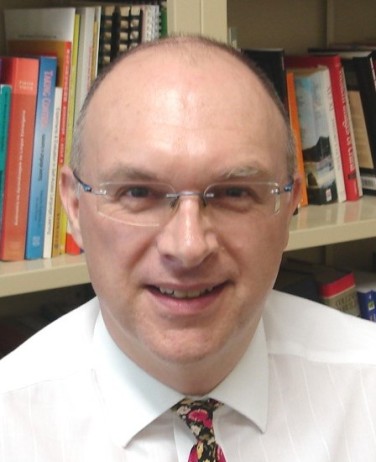 | Prof. Phil Benson Professor of Applied Linguistics
Macquarie University
Australia | Sponsored by: 
|
While we now know a great deal about learner autonomy, we know much less about teachers’ understanding of and attitudes towards autonomy. This is beginning to change, however, with the appearance of research on teachers’ beliefs about autonomy. In this presentation, I will look at some of the findings and practical implications of this research. I will also discuss two projects at Macquarie University in which I collaborated with two pairs of teachers over a period of one year on the implementation of innovations designed to foster autonomy and independent learning in 5-week pre-university English language courses. Focusing on the professional development aspect of this project, I will outline how, as a team, our perspectives on the potential for learner autonomy and independent learning evolved over repeated cycles of implementation and reflection.
Prof. Phil Benson is Professor of Applied Linguistics at Macquarie University. His main research interests are in autonomy and language learning in and out of the classroom. Pursuing these interests has recently led him into research projects on study abroad, language learning and new digital media, and the roles of popular culture in second language learning. His preferred research methods are qualitative and he is especially interested in narrative inquiry as an approach to language learning research. He is the author of Teaching and Researching Autonomy in Language Learning (Pearson, 2011), co-author of Second Language Identity in Narratives of Study Abroad (Palgrave Macmillan, 2012) and Narrative Inquiry in Language teaching and Learning Research (Routledge. 2013), and co-editor of Beyond the Language Classroom (Palgrave Macmillan, 2011). With more than 30 years experience in language education in Asia, he is keen explore opportunities for collaborative work on autonomy in language learning in Asia and Australasia.
| Plenary Speaker | | |
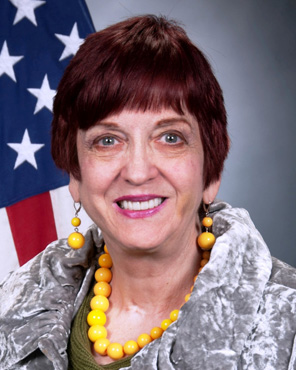 | Prof. Rebecca L. Oxford Distinguished Scholar-Teacher and Professor Emerita
University of Maryland
USA | Sponsored by: 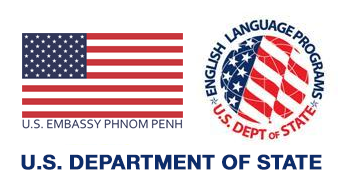
|
Main Conference Plenary Presentation
New Images of Autonomy and Language Learning Strategies
Autonomy has three parts: first, the capacity to control, take charge of, and be responsible for one’s own learning; second, the willingness to do so; and third, the action to make it happen. Autonomy is not just relevant to individualistic cultures but is also present in various modes in all cultures. Learning strategies are an important element of learner autonomy. Rarely do we see pictures of autonomy and learning strategies, but in this plenary Rebecca L. Oxford offers just that – an array of fascinating pictures representing key aspects autonomous learning strategies. She explains what each picture means in terms of autonomy and strategies. She also presents some intriguing metaphors used by theorists and teachers regarding strategies and autonomy. This plenary, presented by one of the most prolific authors on strategies, is meant to inspire and inform.
Regional Research Symposium Plenary Presentation
“I Fought with the Language”: Learning about Autonomy from Learner Narratives
An adult learner recently described his language learning, saying “I fought with the language, and I fought with the culture. I discovered that learning another language is a complex process.” He wrote the entire story of his language learning experiences and revealed how his autonomy grew. In the plenary for the Research Symposium, Rebecca L. Oxford explains how learners’ stories or narratives reveal secrets and strategies of autonomous language learners. Language learning is indeed a complex process, which can only be captured in depth through the use of learner narratives. Dr. Oxford presents narrative research techniques and fascinating quotations from the stories of autonomous learners, and she encourages audience members to conduct their own narrative studies.
Prof. Rebecca L. Oxford’s Lifetime Achievement Award states that her “research on learning strategies has changed the way the world teaches languages.” She is a Distinguished Scholar-Teacher and Professor Emerita, University of Maryland. Before retiring from the University of Maryland, she focused on second language education and culture. She is currently an adjunct professor of second language teaching and psychology at two branches of the University of Alabama. She has published approximately 250 articles and chapters, 12 books (some of which were translated into Japanese, Korean, and Arabic), and 8 journal special issues, primarily on second language learning, positive psychology, language and peace, transforming education, and exploring new research approaches. She has given approximately 475 addresses (keynotes, plenaries, and other presentations) in 42 countries. She initiated and co-edited the Tapestry Program, an ESL/EFL book series (Heinle/Thomson), and is currently co-editing two other book series, Transforming Education for the Future (Information Age Publishing) and Spirituality, Religion, and Education (Palgrave Macmillan). Dr. Oxford served as a tenured professor and program chair at the University of Alabama, Teachers College at Columbia University, and the University of Maryland. She was also department chair and associate dean at the University of Alabama.
| Featured Speaker | | |
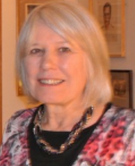 | Prof. Rosie Wickert Chair UTS INSEARCH Academic Board
Australia | Sponsored by: 
|
Regional Research Symposium Plenary Presentation
Getting published
For postgraduate students and novice researchers getting their research articles published can be an overwhelming challenge. Before attempting this task it is important to identify which journals to target, which journals are relevant. How do refereed academic journals function? What are editors looking for and how should you "read" journal referee reports? What questions do you need to ask when considering where to submit a paper for publication?
Prof. Rosie Wickert is Chair, UTS INSEARCH Academic Board. She has wide experience in adult language and literacy education and special interest in policy. When Professor at the University of Technology, Sydney, she actively furthered research in language and literacy education. She was President of the Australian Council for Adult Literacy and has taught language educators in S.E. Asia. Prof. Wickert has extensive experience in journal editing and reviewing papers. For many years, she co-edited of Literacy and Numeracy Studies: an international journal in the education and training of adults.
| Featured Speaker | | |
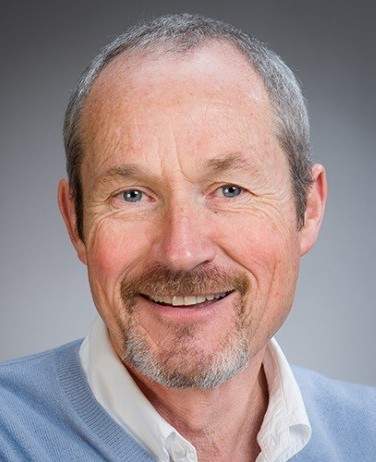 | Assoc. Prof. John Macalister Head of the School of Linguistics and Applied Language Studies Victoria University of Wellington
New Zealand | Sponsored by: 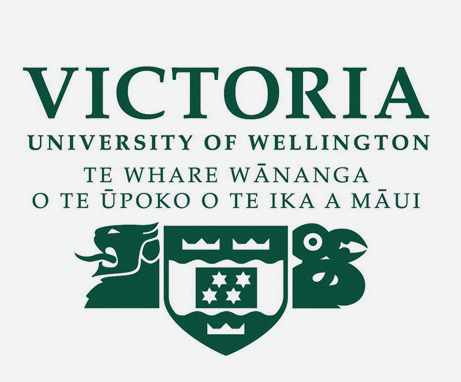
|
Main Conference Featured Presentation
Applying principles in language teaching: A neglected aspect of course books?
For many teachers the course book is the curriculum. Furthermore, because of contextual constraints such as those imposed by an external examination, the course book becomes an unexamined curriculum. Yet in such circumstances the learning outcomes may not be optimal because teachers are not applying principles; principles, in this sense, refer to research and theory about best practice in language teaching and learning. This paper explores this issue, beginning with an examination of classroom practices in relation to course books, followed by a brief examination of the relationship between course book publication and research-based principles. It then examines and exemplifies principles teachers can apply to ensure that their classroom practice is better informed by research and theory than it would be if they relied on the course book alone. The focus will be on key principles that the survey of course books suggests appear to be absent from this conveniently ready-made but too often unexamined curriculum.
Assoc. Prof. John Macalister has research and teaching interests in language teaching methodology, teacher education, and curriculum design. He is Head of the School of Linguistics and Applied Language Studies, Victoria University of Wellington, New Zealand, and past President of the Applied Linguistics Association of New Zealand. His most recent books are 'Language curriculum design' and 'Case studies in language curriculum design', both with Professor Paul Nation.
| Featured Speaker | | |
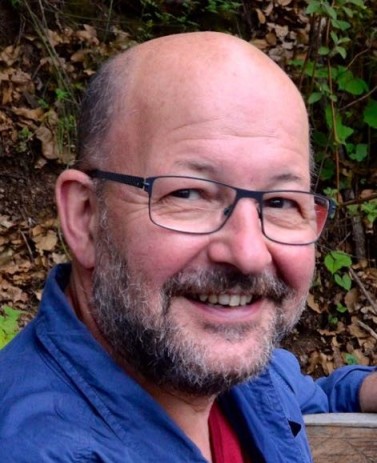 | Mr. Alex Barthel Higher Education Consultant
in Academic Language and Learning
Australia | Sponsored by: 
|
Main Conference Featured Presentation
Integrating academic language and learning in curriculum, policy and practices
Higher education institutions are faced with considerable challenges – in particular, with assessing the wide range of students’ levels of English language proficiency early in their course of study and addressing their needs for either remedial English or developmental academic language assistance within their areas of study. The context of this paper is a project which is aimed at enhancing all students’ academic and professional communication skills, gradually implementing a systematic approach to ensure that all its students have the necessary communication skills to complete their studies and be prepared for employment. This paper focuses on the design, implementation and grading of language assessment tasks as well as the development and integration of language support within students’ course structure and throughout the length of their studies. Pedagogical and policy issues as well as resource implications, which are wide ranging for a project of this size, will also be discussed.
Mr. Alex Barthel is a higher education consultant in academic language and learning. From 1992 to 2011, he was the Director of the former ELSSA Centre, the academic unit which provided academic and professional English language services to students and staff at the University of Technology Sydney. He was the inaugural President and he is the current Public Officer of the Association for Academic Language & Learning (AALL Inc.). He was a member of the DEEWR/AUQA Steering Committee which developed the English language standards for higher education (ELSHE), based on the Good Practice Principles for English language proficiency for international students in Australian universities (GPP).
Previously, Alex was Head of the Division of ESOL/Languages in the NSW TAFE Commission, the largest post-secondary educational institution in the southern hemisphere. Alex has extensive experience in adult language education, staff training, professional development and educational management in Europe and Australia where, shortly after his arrival, he taught English to migrants.
| Featured Speaker | | |
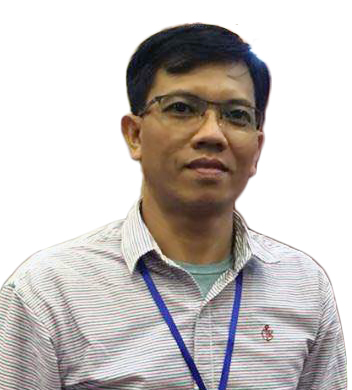 | Dr. Keuk Chan Narith MA Program Coordinator and lecturer of Applied Linguistics and Teaching Methodology
Institute of Foreign Languages (IFL)
Cambodia | Sponsored by: 
|
Main Conference Featured Presentation
Communities of practice and ELT teacher research in Cambodia
This paper reports a study investigating teachers’ beliefs and practices of language learner autonomy (LA) in the Cambodian ELT context in one leading tertiary ELT institution in Phnom Penh. The data were garnered from the lecturers’ responses to the questionnaires and the follow-up email interviews and also from their contributions to professional development workshops, adapted from Borg and Al-Busaidi (2012). The analysis reveals a notion of LA perceived by Cambodian ELT professionals and a common practice of LA within their own classrooms. This presentation also includes constraints of implementing LA and factors to promote LA viewed by the participants. The paper will conclude with the participants’ strategic planning as action research for further promoting LA in their own classrooms. The authors argue that if the aim of tertiary ELT institutions is to promote LA, an appropriate conceptualisation of LA is helpful for developing and promoting language learner autonomy widely.
Dr. Keuk Chan Narith is an MA Program Coordinator and lecturer of Applied Linguistics and Teaching Methodology at the Institute of Foreign Languages. He obtains his PhD from Macquarie University, Australia, in 2015, an MA in English Language and Literature Teaching from Ateneo de Manila University, Philippines, in 2006, and a Graduate Diploma in Applied Linguistics from RELC, Singapore, 2000. His research interests include the variety of English used in contemporary Cambodia, the study of English language teachers and English language teaching education in an EFL context, and ELT teacher research.
| Plenary Speaker | | |
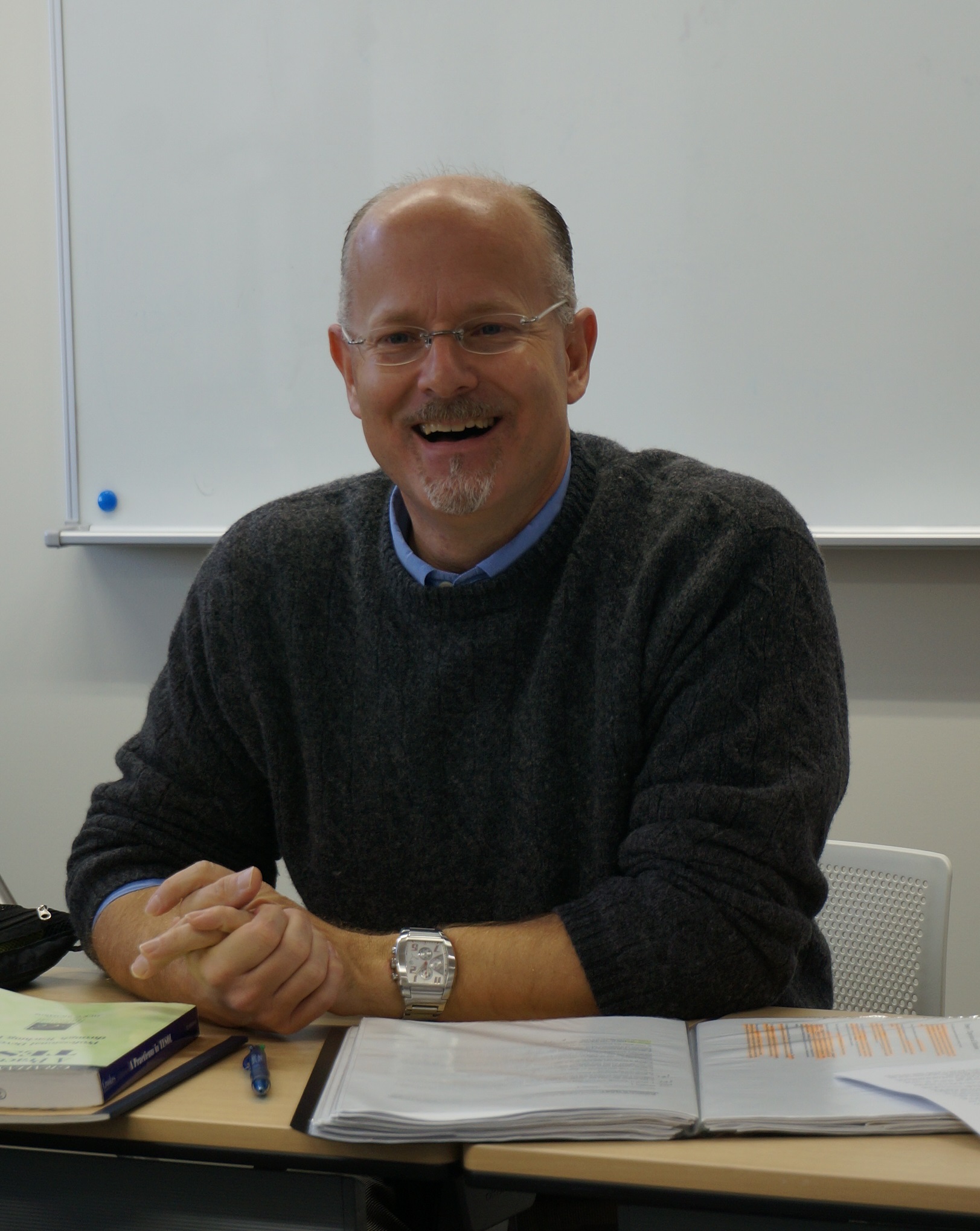 | Dr. Richmond Stroupe Chair of the Master’s Program in International Language
Education: TESOL
Soka University
Japan | Sponsored by: 
|
Main Conference Featured Presentation
Preparing learners for the global community: What teachers can do every day
As part of the professional global community, our learners will be required to be autonomous and confident and to be able to think critically. Our responsibility as educators is to help our learners develop these qualities by providing appropriate scaffolding so that they can engage in a cycle of goal setting, achievement, reflection, analysis and confidence building. Serving as guidelines for novice teachers, and reminders for more experienced teachers, this presentation consists of simple strategies and effective suggestions that any teacher can use on a daily basis within any curriculum with students at any level to help them achieve the skills necessary for success within the global community.
Dr. Richmond Stroupe has worked with university and professional language learners from Asia since 1989. He received his Bachelor of Arts from Wake Forest University (USA) and has a Master’s of Science from Florida State University (USA). He received a PhD in International Comparative Education (Administrative Policy and Planning) from the University of Southern California (USA).
Richmond is currently the Chair of the Master’s Program in International Language Education: TESOL at Soka University, Japan. He is professionally active in Japan, as the Vice President of the Japan Association for Language Teaching (JALT), with TESOL International Association in the United States through involvement in various committees, working groups and task forces, and in Cambodia with CamTESOL, as a member of the international mentor group, the Conference Planning Committee, and the Advisory Board of the IDP Education sponsored Language Education in Asia publication, an internationally peer-reviewed online journal focusing on language education research and practice in the region.
He actively conducts workshops, publishes and presents on professional activities and research projects, which include the use of international standards as internal evaluative tools, teacher collaboration, developing learner autonomy, and participatory management in educational administration. His research interests also include teacher education practices, curriculum and professional development, and developing learners’ critical thinking skills.